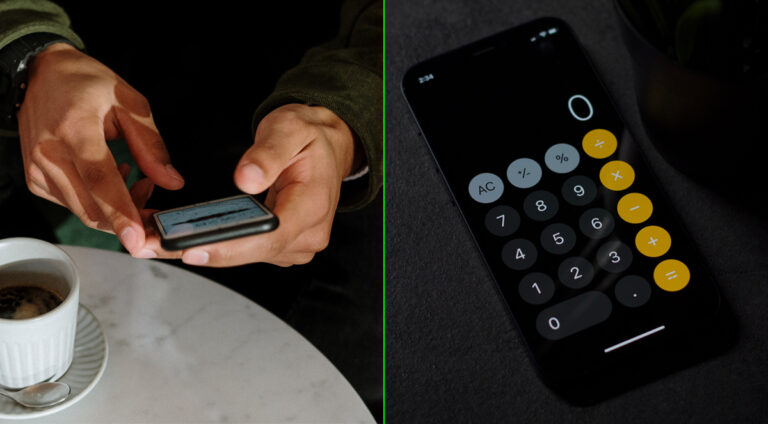If your partner has two calculator apps, they might be cheating on you
Turns out, calculator apps and relationships have a lot in common. Now, we’re all guilty of either checking the weather or doing random numerical on our phones when we anxiously walk past a group of people our age. It’s perfectly normal to do so, but if you’ve ever stumbled across two calculator apps on your partner’s phone, TikTok has some bad news for you today.
First exposed by user @nuggetonair, people are now cheating on their partners using a fake calculator app. Yes, you read that right.
“If you’re dating a guy and you go into his phone and you type in the word ‘calculator’ and he has two calculator apps, he’s cheating on you,” @nuggetonair is heard saying to the camera. Sounds absolutely bonkers, but how does a secondary calculator app suggest infidelity? “Because one of them is a secret photo album for nudes,” the user concluded.
@nuggetonair #cheating #datingadvice #dating #cheaters #cheat #datingtips #datingexpert #datinglife #relationship #realtionships #relationshipadvice #relationshiptips #relationshipproblems #datingproblems
♬ original sound - Nugget
The fake calculator apps in question are available on both Apple and Android devices, so it looks like no one is really safe from tech-savvy cheaters. For Apple users, the 52.5 megabyte (MB) app is dubbed ‘Calculator# Hide Photos Videos’. “It looks like a Calculator but it secretly hides your confidential Photos, Videos, Documents, Passwords, Notes, Contacts and To Dos,” the app’s description reads. “It disguises itself as a Calculator to make it impossible for prying eyes and hackers [to] discover it.”
While you can hide photos and videos from your gallery, the app also has an option to delete these files from your phone’s storage when you move them into its secure vault. Featuring multiple locks, the app additionally includes a ‘Panic Switch’ that quickly switches to another screen if it detects a shoulder surfer or snooper trying to peek at your display. Meanwhile, the app’s ‘Disguise Mode’ confuses potential hackers by displaying a fake crash notification and its ‘Hack Monitor’ can tell you exactly who’s been trying invalid passwords to open your vault.
For Android users, the infidelity app exists as ‘Calculator – photo vault’ by FishingNet. This app is even more advanced than the previous example and includes an ‘Intruder Selfie’ feature that actually snaps a photo of the snooper using the phone’s front-facing camera whenever the password is entered incorrectly. Google Photos and Apple iCloud could never.
I’m surprised at the number of people who haven’t heard of these apps! pic.twitter.com/Rx3vOb65mM
— Tom Zohar (@TomZohar) May 30, 2018
To clarify, both the apps in question aren’t exclusively made to house nudes but are often used for that purpose.
“Facts. And now we are getting divorced 🤷🏻♀️,” a user commented under @nuggetonair’s video. “New fear unlocked 🔓,” another added. “Shhhhhh! You can’t share that info! Bro code #468,” a third warned as others advised to check the storage space for both calculator apps to make sure your partner isn’t doing the dirty.
At the same time, a quick search for the keyword ‘calculator nude app’ would land you in a rabbit hole of people both using and discovering the app’s nefarious purposes:
My brother just showed me his "calculator" on his phone which is actually just an app leading to his screenshots of nudes.. gnight👋🏼👋🏼
— TAR-uh (@taraflat) May 22, 2016
Can't believe I was best friends with benefits with this guy who stored circulated nudes of girls/nudes he received in high school on a hidden calculator app on his phone smh why devs why
— Devika (@devikamafia) September 16, 2021
ur in his DMs im in his secret lil fake calculator app where he keeps all my nudes from 10 yrs ago
— 𝗃𝖺𝗌𝗆𝗂𝗇𝖾 (@putarriquena) October 13, 2021
The bottom line is, if you’re in a relationship and want to maintain healthy dynamics with your significant other, avoid downloading a sus calculator that isn’t actually a calculator. A second app isn’t really necessary unless calculus is your jam anyways…





